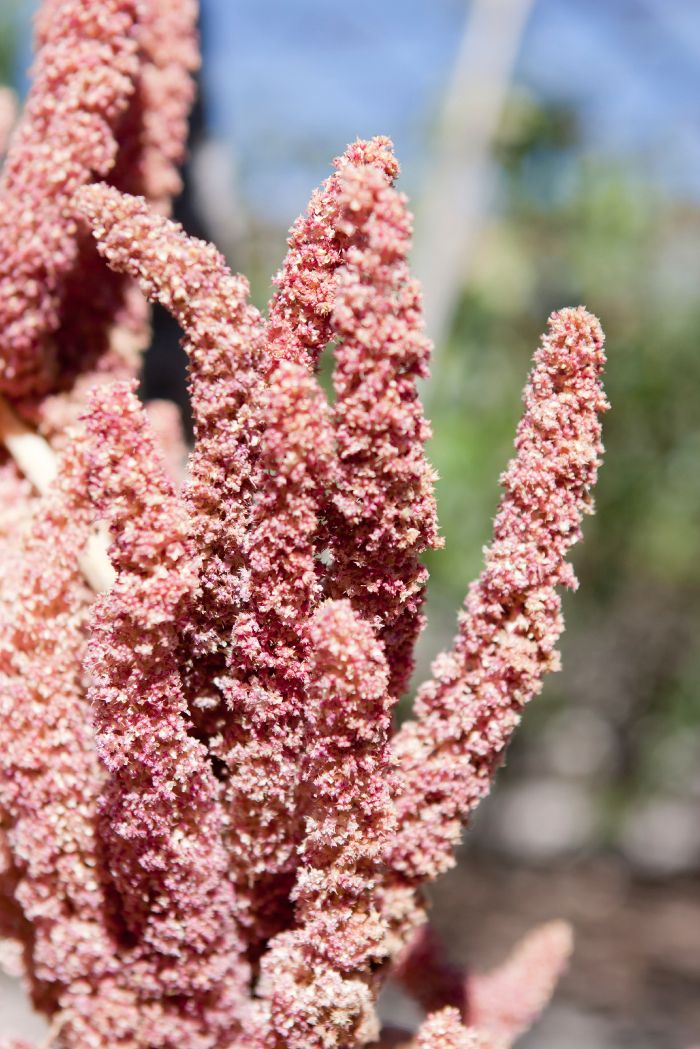Ancient grains market small but growing with help from Ardent Mills, IFT 2018 report
At IFT 2018, Ardent Mills described how it is working with its farmers and customers to grow the supply of specialty grains and to help ensure that these grains will find a home in the end market.
Photo © iStockphoto.com/chrisfarrugia

Despite the popularity of ancient grains in the healthy foods market, the supply of ancient grains in the U.S. still pales in comparison to that of commodity grains (corn, wheat, rice, barley, oats, and the like). As more customers clamor for ancient grains and heirloom wheats like quinoa, amaranth, millet, sorghum, spelt, and teff, to name a few, flour and grains supplier Ardent Mills (Denver) is working with its farmers and customers to grow grain crops and to help ensure that these specialty grains will find a home in the end market.
At the Institute of Food Technologists’ Annual Meeting and Food Expo in Chicago in July, Nutritional Outlook met with Shrene White, general manager, The Annex by Ardent Mills. The Annex by Arden Mills, first launched by Ardent Mills at the Natural Products Expo West trade show in March, is the company’s new business unit whose mission is to develop “next” grains and plant-based ingredients.
“Right now, Ardent is known for white, conventional flour. The Annex is a dedicated space where we can focus on the specialty grains and innovation around those grains,” White explained. “We have products like quinoa, our barley program, our ancient grain gluten-free program, and our heirloom grains like White Sonora, einkorn, emmer, and spelt.” The Annex not only focuses on emerging specialty grains; it is also helping to innovate new forms of those grains, including crisps (such as for bars, baking, and snacks), flakes, and Individual Quick Frozen (IQF) ingredients that expand applications for ancient grains.
Farmer relationships are integral to The Annex. White said Ardent Mills works very closely with farmers to increase ancient grains acreage. “We work with a lot of family farms,” White said. “We’ve been able to build on those relationships and bring new opportunities to our farmers. We have farmers growing some of our heirloom grains for us-einkorn, emmer, spelt, triticale. We also work with public and private breeding companies to help us breed new varieties, such as our Ultragrain flour developed by Colorado State University.” (The Annex program nurtures university research partnerships.)
Part of what Ardent Mills helps farmers do is diversify their farms with ancient grains and expand beyond commodity grains. “We’ve had a lot of farmers come to us and say, ‘Hey, I want to diversify. I want to add value to my farm. What grains are you guys interested in?’ We’ve been able to give them guidance and direction, whether it’s helping them transition from conventional to organic, or just trying something new, like quinoa,” White said.
Ardent Mills also lets farmers know there will be a buyer for that grain. “When Ardent Mills comes to the table with something new, the farmers know that we’re going to support them or help them get that grain to market,” she said.
Through these partnerships, Ardent Mills has been able to help increase the size of ancient grains crop in the U.S. As Nutritional Outlook has reported before, North American-grown quinoa is still quite rare. But thanks to its farming partnerships, Ardent Mill is growing the supply, including through its Great Plains quinoa program, which includes Canadian-grown quinoa. “Now, we’re starting to grow it in the Pacific Northwest and in Colorado, as well,” White told Nutritional Outlook. She added that working so closely with farmers lends transparency up and down the supply chain.
Stimulating the ancient grains market doesn’t just stop with the farmers, however. Ardent Mills also helps its customers find new ways to formulate with ancient grains in order to expand applications and grow demand. “We help our customers on the innovation side. We help them understand and develop new products, to help them incorporate these grains in what they might be doing,” White said.
Still, White said, ancient grains naturally remain “a very, very small space” compared to the traditional grains market. But with Ardent Mills one of the players helping to invigorate both supply and demand, and with “farmers seeing that there’s opportunity in this space,” hopes are high that the market will grow. And partnerships remain a crucial cog in the wheel.
“It really is a partnership all the way from the farmer through The Annex through to our customer,” White said. “That’s one thing that we really try to stress: this can’t be a transactional relationship. It’s got to be a partnership, because we have farmers who it’s going to take, say, three years to convert to organic, for instance, and they want to know that if they put in that time and that effort that they’re going to have a bid for that wheat in three years.”
“And on the flip side,” she continued, “working with our customers, we’re helping build these relationships and actually becoming part of that R&D process so that our customers are coming to us and saying, ‘Hey, 18 months from now, we want to launch this particular type of snack or this chip, and these are the grains we want to incorporate into that. That’s allowing us to work backwards, whether it’s working with a university or with a farmer to help start that supply chain.”
The opportunity for growth is there, White said. “When you look at new introductions on menus and what’s happening in the grocery story-we see a lot of runway, and a lot of these grains are just at the inception.”
Senate Committee has released the text of 2024 Farm Bill, with changes to hemp regulations
November 19th 2024The U.S. Senate Committee on Agriculture, Nutrition, & Forestry has introduced the Rural Prosperity and Food Security Act, which will serve as the Senate’s draft for the 2024 Farm Bill.